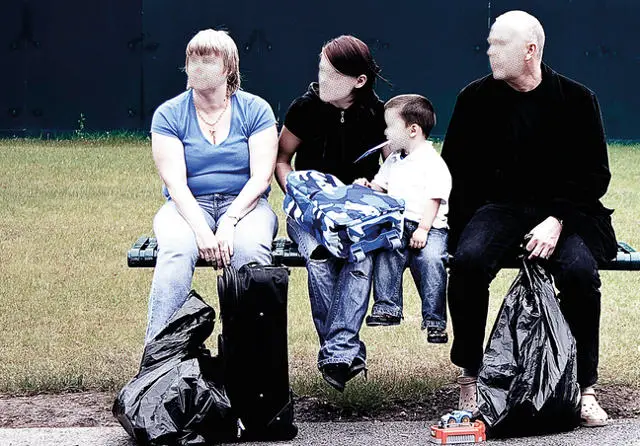The number of homeless households living in temporary accommodation on the Isle of Wight has increased significantly in the last five years.
A homelessness charity has criticised the growing number of families and individuals being placed into B&Bs, hostels and other temporary housing, saying it can be “sub-standard and sometimes dangerous”.
20% increase since 2013
According to newly-released numbers from the Ministry of Housing, Communities and Local Government, there were 169 households in temporary accommodation on the Isle of Wight at the end of March this year – a 20% increase on the number in 2013.
The figures also show that six of the homeless households – who had been identified as a priority case – had not been found any accommodation.
Of the households in temporary accommodation on the Isle of Wight in March, the majority, 118, were placed in private leased homes. Of the rest, 21 were placed in B&Bs and 30 were in housing association stock.
Priority cases
In the 12 months to March 2018, 78 households on the Isle of Wight were classified as homeless and a priority need. It means the council have a responsibility to find suitable accommodation for them – though councils will often help non-priority cases as well.
Priority cases include families with children, households where someone is pregnant and people aged 16 or 17. Councils can also class certain people as a priority if they are vulnerable, including victims of domestic abuse, people with mental health issues and those who have spent time in care, prison or the armed forces.
National trend
Across England, there are 10,000 families for whom councils have a duty to provide housing, but no suitable accommodation had been secured. In 2013, there were 5,930.
The number of people in temporary accommodation has also risen, by 44%. In England, there are now nearly 80,000 households in such lodgings.
The chief executive of homelessness charity Crisis, Jon Sparkes, said:
“While we welcome steps the Government has taken around preventing homelessness, today’s figures are a stark reminder that there are still far too many people who are homeless and stuck in temporary accommodation or being placed in sub-standard and sometimes dangerous B&Bs.
“Every day we see first-hand the effects of long stays in these types of accommodation – people can become isolated, with little access to vital support services, in poor conditions with nowhere to wash clothes or cook.
“No one deserves to live like this. When people do lose their homes, we need to make sure they are helped quickly into safe and secure accommodation. This means affordable houses and flats in ordinary communities.”
The Homelessness Reduction Act
From April this year, local councils have been required to implement the Homelessness Reduction Act, which is designed to ensure that public services work together in a coordinated approach to tackle homelessness. Despite a government commitment to spend £72.7m on it over three years, many councils have reported their facilities for tackling homelessness being stretched by rising demand.
Martin Tett, the housing spokesman for the Local Government Association said:
“Every instance of homelessness is an individual tragedy. This rise in homelessness, which means that councils are currently housing more than 79,000 homeless families, and in excess of 123,000 homeless children, in temporary accommodation is deeply worrying.
“Councils are determined to prevent homelessness from happening in the first place and do all they can to support families. Rising homelessness demonstrates the need for the duties that the Homelessness Reduction Act imposed on councils to be fully funded and resourced.
“The people caught up in our homelessness crisis can’t afford for us to wait. It’s now crucial that we take the serious measures that are needed to get towards our collective ambition to end homelessness outright.”
Article shared by Data Reporter as part of OnTheWight’s collaboration with Press Association and Urbs Media
Image: Lefteris Heretakis under CC BY 2.0





